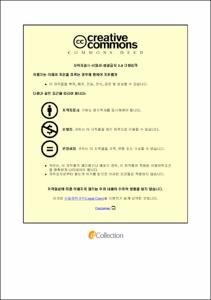플라즈마를 이용한 소독부산물의 저감
- Abstract
- A plasma process was used to treat natural organic matter in water which can produce the disinfection by products. Response surface methodology (RSM) is used to get a set of designed experiments to obtain optimal multi factor operating conditions for the lime stablization process. Response Surface Methodology explores the relationships between several explanatory variables and one or more response variables. It is a collection of mathematical and statistical techniques for empirical model building.
The main objective is to optimize a response (operating watts of plasma process and reaction time) which is influenced by independent variables(UV254, DOC, THMFP). Operating watts of plasma process were 50 ∼ 140 W and reaction times were 2 ∼ 14 min, respectively.
To obtain the efficiency of uv254 above 25.6 % and DOC above 60 %, THMFP above 50 %, the operation conditions of plasma process was 110 W and reaction time was 13.5 min, respectively.
- Issued Date
- 2016
- Awarded Date
- 2016. 8
- Type
- Dissertation
- Publisher
- 부경대학교 대학원
- Affiliation
- 부경대학교 대학원
- Department
- 대학원 U-EcoCity협동과정
- Advisor
- 이병헌
- Table Of Contents
- 제 1 장 서 론 1
제 2 장 문 헌 연 구 3
2.1 소독부산물의 특성 3
2.1.1 소독부산물(Disinfection by-products : DBPs) 3
2.1.2 소독부산물의 생성 영향인자 4
2.1.3 소독부산물의 위해성 6
2.1.4 소독부산물의 제어 방법 7
2.2 플라즈마를 이용한 오염물질 제거 8
2.2.1 플라즈마 특성 8
2.2.2 플라즈마 적용 사례 11
제 3 장 재료 및 방법 13
3.1 실험 재료 및 장치 13
3.2 실험 방법 15
제 4 장 결과 및 고찰 17
4.1 플라즈마를 이용한 UV254의 처리 특성 17
4.2 플라즈마를 이용한 DOC의 처리 특성 22
4.3 플라즈마를 이용한 THMFP의 처리 특성 27
4.4 반응표면 분석법을 통한 실험조건의 최적화 32
제 5 장 결 론 34
참고문헌 35
- Degree
- Master
- Appears in Collections:
- 대학원 > U-EcoCity 협동과정
- Files in This Item:
-
-
Download
 플라즈마를 이용한 소독부산물의 저감.pdf
기타 데이터 / 1.92 MB / Adobe PDF
플라즈마를 이용한 소독부산물의 저감.pdf
기타 데이터 / 1.92 MB / Adobe PDF
-
Items in Repository are protected by copyright, with all rights reserved, unless otherwise indicated.